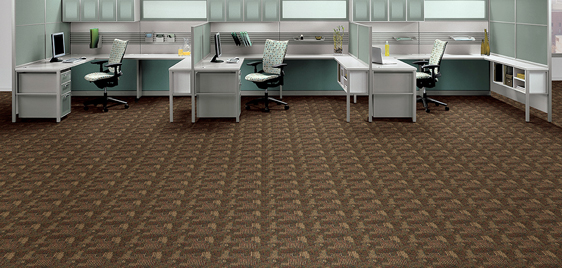Commercial Flooring Choices For Your Office
At Cardoza Flooring, we find that a lot of our commercial clients come to us with questions about which type of flooring is best for their business. While some want to spend a bit more money and get something a bit fancier, just as many customers hope to find commercial flooring that is easy on the budget.
With that in mind, here is a “Business Flooring 101” rundown of some of the most common and durable forms of commercial flooring:
Carpet tiles: For many businesses, carpet tiles are an excellent option. In addition to being affordable, they tend to be incredibly durable. This is an great feature for commercial buildings that get a lot of foot traffic. In fact, commercial carpet tile is pretty much designed to withstand a lot of people walking on it, all the time—this is why airports and hospitals often choose this type of floor covering.
Rubber: This flooring is easy to keep clean, stain resistant and waterproof. It is often found in places that get a lot of traffic and hold heavy items, like as gyms and sporting facilities. Rubber also provides the people who walk across it with a nice cushioned surface, and it also offers some natural sound insulation. For rough and tumble areas that will require frequent cleaning, rubber is a terrific choice.
Linoleum: This inexpensive yet durable floor covering has been around for decades, and for good reason. It is tough, easy to clean, and it comes in a wide selection of patterns and colors. As a bonus, linoleum is considered to be a “green” product, so it’s great for business owners who are looking to install flooring that is environmentally friendly.
Vinyl composition tile, or VCT, tends to withstand a lot of foot traffic with ease; this makes it a great choice for commercial buildings. In addition, scrapes and scuffs are not generally noticeable, and the tiles are tough and durable. Easy to clean and long-lasting, VCT is a great selection for commercial buildings.
Commercial building owners should keep several things in mind when deciding which type of flooring will be best for them and their business. For example, they should consider and/or ask themselves or us the following questions:
- What is the installation schedule going to be like? Can the flooring be installed before or after hours, or on weekends? About how long will it take to install?
- What is my budget like for this project?
- How durable is this flooring? My business gets a lot of foot traffic and we have a lot of heavy items stored here; will this flooring be able to handle that?

